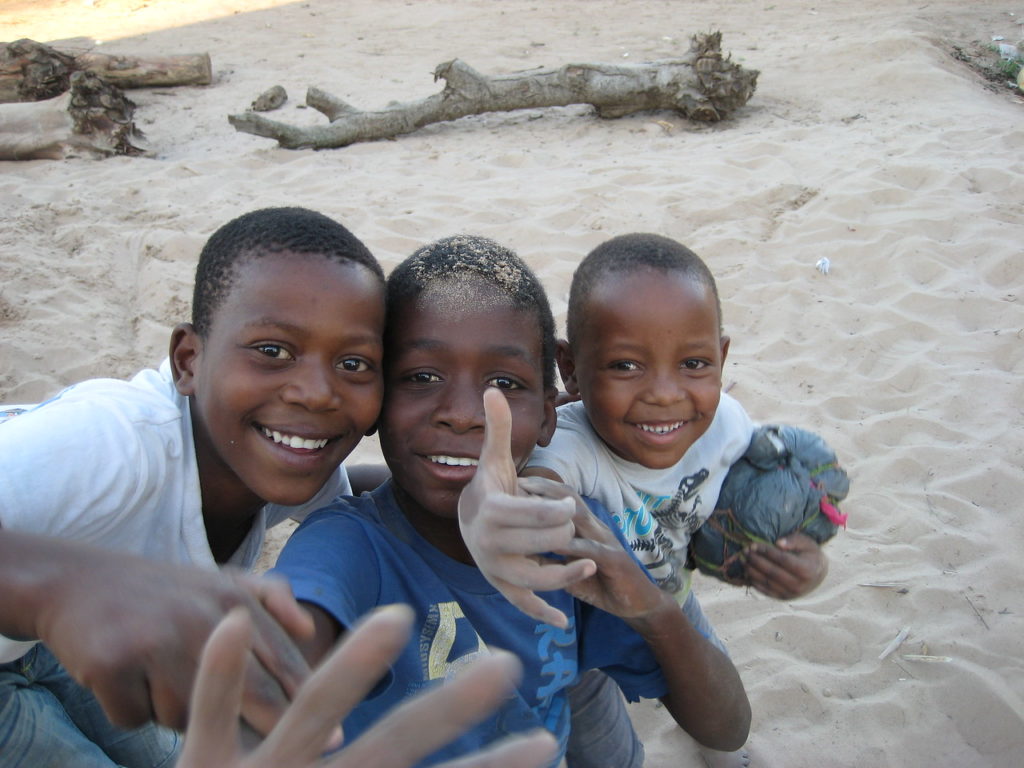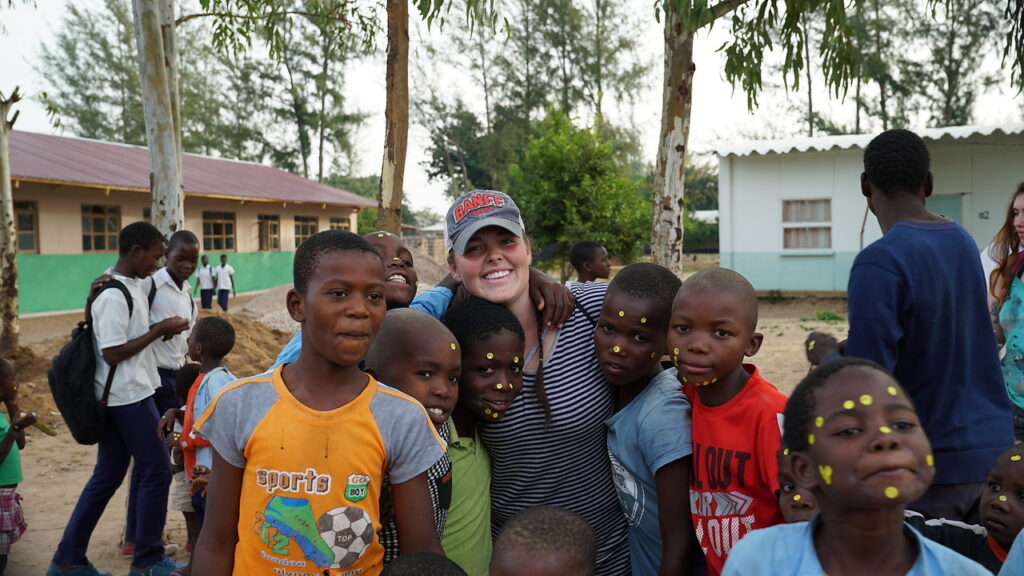Community members, Weber State University faculty and students nearly filled the Browning Center Austad Auditorium to watch the Nov. 1 screening of “Windows of Change,” a documentary produced by Weber State digital media advisor Drew Tyler and his wife, communication instructor Stacey Cragun Tyler.

The film highlights the journey of Weber State students who volunteered to help construct two new classrooms and a library for the Mahubo village on the southeast corner of Mozambique through the Global Community Engaged Learning program.
When the opportunity was presented to Drew and Stacey Tyler to go to Africa and film, they jumped at the chance to do something more with their experience.
“This one just sounded like it would be a great place for us to stretch a little, to do something larger.” Drew Tyler said. “This was like that moment where it’s going to be hard, it’s going to take a lot of time, but let’s do that.”
Following the university’s previously organized trips, they created a 15-20 minute recap of the project showing what they did. The Tylers knew they wanted to do something different with their time in Mozambique.
“We intentionally thought, ‘Let’s do something that’s bigger than we’ve done before,'” Drew Tyler said.
However, the duo realized it’d be difficult to take a 15- 20 minute story and transform it into a feature-length production.
“Documentaries are about emotion,” Drew Tyler said. “They’re about inspiration, education, motivation — some realistic thing that you’re portraying and deeming valuable so that everybody can experience it,”
The husband and wife team set out to create such a film. They focused their questions on the impact of the trip, the impact it had on the people of Mozambique and the volunteers from Weber State.
“Those sound bites, those interviews became something worth sharing,” Drew Tyler said. “Now we can turn that into a story worth watching.'”
To hold himself accountable for such a large project, Drew Tyler began telling people about his and his wife’s intentions to make a full feature film. He said the expectation for a feature-length film made him determined to deliver one of full length.
Drew Tyler believes he and his wife spent around 300-400 hours on this project. This time included thinking about and transcribing interviews over the summer, with Stacey Drew Tyler writing and placing all of the soundbites together.
With 17 hours of video shot, the final run down came to only 68 minutes.
“It’s a big, giant project,” Drew Tyler said. “I’ve never dug into some singular thing since I wrote my graduate thesis. It’s been that big of a project, but it’s a labor of love,”
The story the Tylers wanted to tell was a story of love, humanity and becoming a better person through service.
Drew Tyler said he hoped the film would inspire others to do better, to offer a hand to those in need when they spot an opportunity.
Glen Woolsey, a grandparent of one of students who went on the trip, was pleased by the film, saying it was “very enlightening.”
“You knew they received something out of it,” Woolsey said. “But prying information out of a young person about what they did, what they learned (and) what they saw versus seeing it now brings it full spectrum.”
Susan Frisbee, aunt of program participant Parker Neeley, was also touched by the film.

“The kids that go come back and say, ‘Lord, I’m thankful to live in America and that I have this,'” Frisbee said. “But on the other side they want to say, ‘Thank you, Lord, for letting me go and see how your other children have to live too.’ It was fabulous.”
The Tylers have great hopes for this film. They plan to make it available on Amazon and Hulu. They also plan to enter in film festivals and the Ogden Arts Festival, but awards or recognition is not the main focus of the project.
“We need to make this go bigger and broader because this is a message that the world needs to hear right now,” Drew Tyler said. “If I can touch one person and it affects lives and they go do more humanitarian work because of inspiration from this moment, that’s the hope,”



















